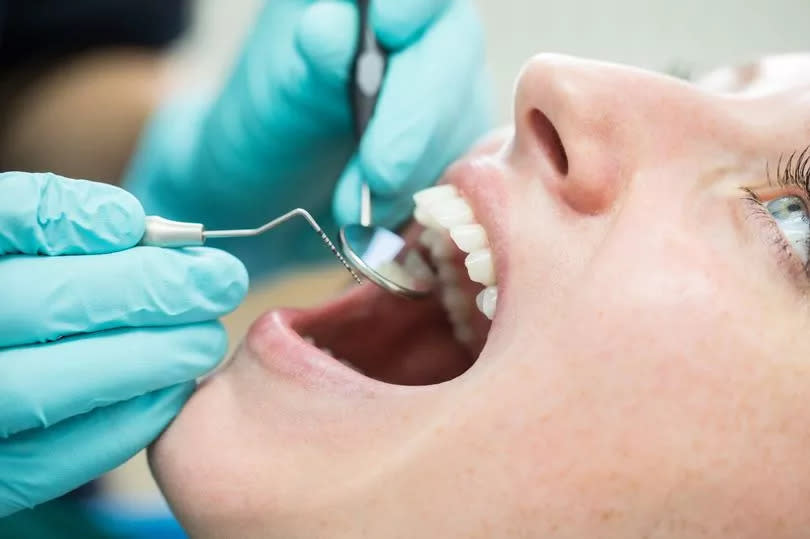Dentist warns against 'seemingly harmless' habit that can make you bloated and harm health

Your daily chewing gum habit might be silently wreaking havoc on your oral health and beyond, a dental surgeon has warned. Whether it’s out of boredom, wanting fresher breath or replacing unhealthy snacking, many of us reach for a stick of gum on a regular basis.
But Andrej Bozic, an oral surgeon at Dentum, has cautioned against this "seemingly harmless" ritual, claiming it could upset the delicate balance of your mouth's microbes.
He said: "Many people are unaware of the detrimental effects of chewing gum containing artificial sweeteners on their oral health. These sweeteners not only disrupt the delicate balance of the mouth's microbiome, which is crucial for maintaining healthy teeth and gums, but they can also lead to digestive issues such as bloating."
The mouth harbours a diverse ecosystem of bacteria, some of which are beneficial for oral health. However, he said consuming artificial sweeteners found in conventional chewing gums can upset this balance, paving the way for harmful bacteria to thrive and potentially contributing to dental problems like cavities and gum disease. Dr Bozic stressed the ripple effect such oral health issues can have on overall health, particularly on gut health.
"The mouth is the gateway to the digestive system," he said. "Disruptions in oral health can have a domino effect on gut health, potentially exacerbating conditions like irritable bowel syndrome and compromising overall wellbeing."
Dr Bozic offered a simple solution for gum lovers: "For those who enjoy the act of chewing gum but are concerned about their oral health, I recommend opting for xylitol-sweetened gum as a healthier alternative."
Xylitol, a natural sugar alcohol derived from birch bark or corn cobs, boasts numerous benefits for dental health and is an ingredient now commonly found in many chewing gums sold in health shops. Unlike conventional sweeteners, xylitol has been shown to inhibit the growth of cavity-causing harmful bacteria in the mouth while promoting the remineralisation of tooth enamel, thus reducing the risk of cavities and strengthening teeth, he said. Swapping to xylitol-sweetened gum can also stimulate saliva flow, helping to cleanse the mouth and reduce the risk of tooth decay.
"Xylitol-sweetened gum not only satisfies the urge to chew but also actively contributes to maintaining a healthy oral environment," explained Dr Bozic. "Its unique properties make it an excellent choice for individuals seeking to protect their teeth and gums without compromising on taste or convenience."
Dr Bozic urges his patients to reconsider their chewing gum choices in favour of healthier alternatives.
"Making the switch to xylitol-sweetened gum is a simple yet impactful step towards preserving oral health and supporting overall wellbeing," he said.

 Yahoo News
Yahoo News 
